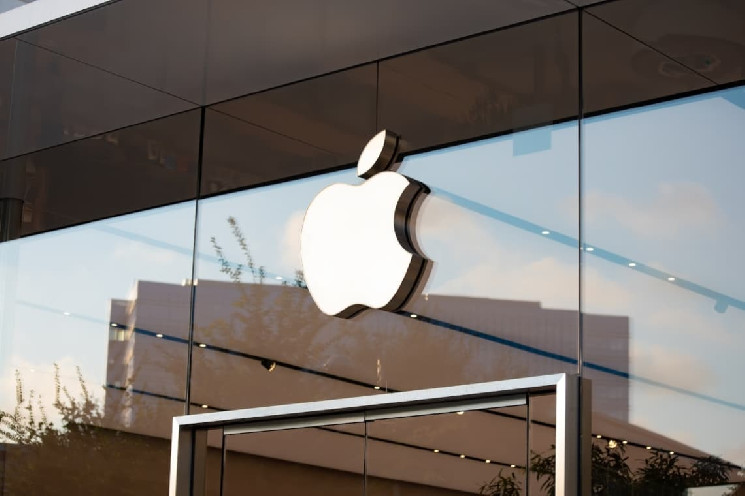The Cupertino-based giant, Apple, has decided to allow the sale of NFTs through its App Store.
The sale of NFTs on Apple’s store
In an announcement that was long overdue, Apple has let it be known that it will allow developers to sell their NFTs through its app store, within games and apps, although this has raised some eyebrows in the crypto community.
Apple has decided to let developers sell NFTs inside of games/apps. Everyone is focusing on apple wanting its 30% cut of each transaction without realizing this could put an ETH wallet in every single mobile game onboarding 1B+ players! https://t.co/BPJj3gD5r2
— Gabriel Leydon (FREE,OWN) (@gabrielleydon) September 23, 2022
Now, developers of current apps can sell NFTs within apps, and new apps can have NFTs within them. However, as pointed out by some, attention is being drawn to the hefty 30% fee of each NFT transaction by Apple. Evidently, the boom that the NFT market enjoyed last year has also attracted a giant like Apple, which has evidently decided to jump into this interesting market to do further business, taking advantage of its dominant position in the app market, thanks to its App store.
For this very reason, many start-ups seem to be not at all interested in using the App store, while according to the company, there have already been many requests from developers and start-ups. Several start-ups complain that the rules Apple allegedly imposed on them and the 30% fees make it impossible to use the App store.
Apple has been trying to run for cover by reducing the fee to 15% for companies billing under $1 million, but the response from companies in the industry continues to remain very weak. It is enough to consider that the average transaction cost is around 2-3%.
However, it is not only the high fees that are driving developers away from the App Store, but also other rules, such as that transactions must be made in dollars or other currencies, and not cryptocurrencies.
At Apple’s release of this announcement, Arthur Sabintsev of the blockchain company Pocket Network, said that this problem
“makes it really hard to price it because you have to program all these values in dynamically.”
As a result, Sabintsev said he advised one of his clients to allow users to purchase currency in-app:
“In the same way that some games do. They buy the currency, and that transaction nets Apple 30%, then they spend it in-app on deals.”
Apple’s uncertain goals
Apple would also require all developers who released games with NFTs to transfer it only as in-app purchases. A rule that undermines the principle of disintermediation typical of blockchain-based crypto assets, which can be transferred freely between crypto wallets without the need for third-party oversight. In that case, NFTs are sold peer-to-peer without additional fees except for “gas fees” or a “sales fee” imposed by the game itself.
For some, all these rules make it seem that there is little real interest on Apple’s part to develop this NFT sector, which has slowed down sharply in early 2022 in the wake of major declines in the cryptocurrency market.
Alexei Falin, CEO of the well-known NFT platform Rarible, said:
“It seems that the position is that Apple doesn’t really want users [of the App Store] to be able to buy or sell NFTs. It’s almost impossible because these are fixed subscriptions or fixed prices.”
Falin also argued how it took several months to get Rarible’s app on the App store, versus only a few days for Google Play Store. Apple’s App Store currently already hosts 3.59 million apps and 984,000 games.
While Apple seems to be adopting a basically restrictive policy toward all things related to NFTs, other giants on the other hand, seem to want to move decisively towards NFTs, especially in light of the new developments that could occur with Web3 and the Metaverse.
Disney wants to develop its metaverse idea
In recent days, the company posted a job ad on LinkedIn seeking a lawyer specializing in digital asset transactions with a focus on the world of NFTs to explore new technological opportunities.
The job ad reads:
“Participate with business teams as they plan new global emerging technology projects across supplementary segments, such as the metaverse and decentralized finance.
Assist in performing due diligence for NFT, blockchain, third party marketplace and cloud provider projects, and negotiating and drafting complex agreements for those projects.”
Then again, the company’s CEO, Bob Chapek, has repeatedly stated, most recently on 10 September, that Disney is ready to explore the new frontier of the metaverse:
“We call it next-generation storytelling. We don’t use the Metaverse word too often because it has so much hair in it.”
In February, Disney hired a Business Development manager with a specific focus on the NFT world. The former Disney CEO had said months ago that he had been amazed at how many Disney items in NFTs he had found on the OpenSea platform, most of which were without the rights to create them, thus pirated.
In February, the company released the first four NFT collections, under the name “Golden Moments,” one for each of Disney’s franchises: Pixar, Star Wars, Marvel, and animation studio. The collections sold out within hours on the Veve platform, which handled the sales.
The NFT industry has already taken the fashion world by storm, with major brands from Gucci to Prada to Richmond, Cartier Hublot and Nike already launching unique NFT collections in recent months.
In August, coffee giant Starbucks launched its NFT reward program, while the sports world is finding precisely in NFTs a new way to expand its business, thanks to new possibilities for interaction with its fans.
 en.cryptonomist.ch
en.cryptonomist.ch
